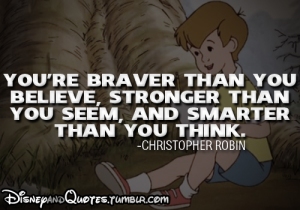The first publishing attempt didn’t allow comments, I have reposted. Sorry guys!!
Hello once again,
Welcome back to my ramblings on the social paradigms of education and social media. A theme that keeps occurring in comments is ‘cyber bullying’ and its detrimental effect on education (see week 1), so I have decided to tackle this issue head-on by considering the effects of self-esteem in education.
In the news this week, Courtney, a 15 year old girl, faced online abuse and hate attacks over twitter after Justin Bieber re-blogged her tweet. Bieber’s fans/Beliebers (suffering from a severe case of Bieber Fever) were outraged that a “non-Belieber” received attention and they did not. Courtney reported that these tweets began to take a toll, decreasing her self-esteem and self-confidence. By no means do I suggest that a hate campaign to this extent or insanity would occur during the application of social media in education, however this example shows how social media, when in the wrong hands, can harm self esteem. When using social media in education, a decrease in self-esteem would mean a decrease in educational motivation and a decrease in academic performance. (Deci & Vallerand et al, 1991).
In support of this, Valkenburg, Peters and Schouten (2006) found that although receiving positive feedback via social media can increase self-esteem, negative feedback causes a decline in both self-esteem and motivation. Fletcher’s (1990) theoretical framework of self-esteem and cooperative education suggests that in order for peer learning to be effective students must:
1. Have successful mastery experiences
2. Have empathetic advisor interactions
3. Have rules, standards and individual control
4. Be able to provide others with feedback
This framework implies that self-esteem increases confidence in academic ability. Furthermore, when empathy, rules and standards to promote self esteem are not met, students are unable to constructively provide feedback to their peers. As a result, Fletcher’s framework suggests that when educators initiate peer interaction in academic blogs, it is important to maintain a code of conduct that encourages self-esteem in order for cooperative learning to be successful.
Arguably student self-esteem should be monitored because of student welfare. However, positive self-esteem has been associated with an improvement in academic performance. Social media in education is primarily associated with learning through social interaction, whereas positive self esteem has been shown to improve intergroup relations and efficiency of cooperative learning (Salvin, 1991). In addition, Deci and Vallerand et al (1991) found that when student self-esteem was encouraged, in regards to their academic ability, students demonstrated increases in course interest, intrinsic motivation and confidence. The research found that students demonstrating high self-esteem in academic abilities, placed a higher value on educational content and demonstrated more efficient self-regulation than those demonstrating low self-esteem. Deci and colleagues argued that the increase in self-regulation and intrinsic motivation led to an increase in academic performance and conceptual understanding.
Additionally, Williams and Deci (1998) found that medical students, who had increased self-esteem, demonstrated higher conceptual understanding of psychiatric disorders and demonstrated better cognitive adjustments to learning. Edwards and Deci’s model suggests that self-esteem enhancement in relevant activities increases student motivation and performance.

As you may expect, self-esteem has its limitations. Purkey (1970) argues that ‘the self concept’ alone is not an influence on academic performance. Purkey also suggests self-esteem is only effective when related to academic abilities, and that self-esteem works indirectly through motivation to enhance performance and willingness to learn
So, ‘cyber bullying’ could occur through negative blog comments or aggressive tweets, if students share their work through social media. ‘Cyber bullying’ decreases self-esteem that may, in turn, interfere with Fletcher’s frame work, intrinsic motivation and self-regulated learning, which stunts academic performance.
However, I refuse to leave you on a negative note!
Canfield and Wells’ (1994) book “100 ways to enhance self concept in the class room” suggests we can encourage self-esteem through highlighting strengths, building relationships and refraining from using language that hinders academic goals. These measures are all applicable to educational social media – with teacher moderation, for example, as long as peer feedback is ‘marked’ or monitored, detrimental language and abuse will not reduce self-esteem. In addition, monitored peer evaluation can be directed towards measures of increasing self-esteem and thus aiding academic performance.
Thanks for reading!
I couldn’t pick between these quotes! I’ve pushed the boat out and you can have them both.
Thank me later.
******
References
Bieber Article: http://www.parentdish.co.uk/2013/03/04/bieber-fever-turns-nasty-for-teenager-on-twitter/
Deci, Vallerand et al (1991): http://www.tandfonline.com/doi/abs/10.1080/00461520.1991.9653137
Valkenburg, Peters and Schouten (2006): http://online.liebertpub.com/doi/abs/10.1089/cpb.2006.9.584
Fletcher (1990): http://www.eric.ed.gov/ERICWebPortal/search/detailmini.jsp?_nfpb=true&_&ERICExtSearch_SearchValue_0=EJ426579&ERICExtSearch_SearchType_0=no&accno=EJ426579
Salvin (1991): http://www.eric.ed.gov/ERICWebPortal/search/detailmini.jsp?_nfpb=true&_&ERICExtSearch_SearchValue_0=EJ421354&ERICExtSearch_SearchType_0=no&accno=EJ421354
Edwards and Deci (1998): http://annals.org/article.aspx?articleid=711623
Purkey (1970): http://www.eric.ed.gov/ERICWebPortal/search/detailmini.jsp?_nfpb=true&_&ERICExtSearch_SearchValue_0=ED058359&ERICExtSearch_SearchType_0=no&accno=ED058359
Canfield and Wells (1994): http://www.eric.ed.gov/ERICWebPortal/search/detailmini.jsp?_nfpb=true&_&ERICExtSearch_SearchValue_0=ED376383&ERICExtSearch_SearchType_0=no&accno=ED376383


I cannot agree more that bullying (and especially cyber-bullying) is a very real problem in this day and age, one which I do not think the education system is ready for, and should be able to more competently address before the introduction of wide-spread social media use in education. These things happening on Facebook, (or wherever the kids go these days, my little sister repeatedly reminds me I’m out of touch now) is bad enough, but in something moderated by schools, staff would have a much greater responsibility to get involved. A longitudinal study by Bond, Carlin, Thomas, Rubin and Patton (2001) found that having a history of victimisation and poor social relationships predicts the onset of emotional problems in adolescents – there is also much research to support the idea that those with emotional problems will not perform as well academically, for example, Andrews and Wilding (2010).
I look forward to reading your next blog 🙂
Further to your concerns about the use of social media in education, a recent survey of higher education faculty (Babson Survey group, 2011) highlights some other barriers that prevent social media from being successfully integrated into education. 70% of the participants surveyed said they had concerns about the privacy of student’s submissions when using social media, and 80% said they had concerns about the integrity of the submissions. The amount of time it takes to use social media in education was also considered to be a barrier to learning, as it is sometimes thought to take more time than it is worth. With this in mind, I think that a lot of kinks need to be ironed out before social media becomes a commonly accepted medium for education. Whether it is the risk of cyber bullying, privacy invasion, or time constraints – there are too many serious problems for us just to ignore them.
References:
1) http://www.eric.ed.gov/ERICWebPortal/search/detailmini.jsp?_nfpb=true&_&ERICExtSearch_SearchValue_0=ED535130&ERICExtSearch_SearchType_0=no&accno=ED535130
Pingback: week 7 comment links | Laura's S.o.E weekly blog
Fantastic beat ! I would like to apprentice while you amend your site, how can i subscribe for a blog
website? The account helped me a acceptable deal. I had been tiny bit acquainted of this your broadcast provided bright clear idea